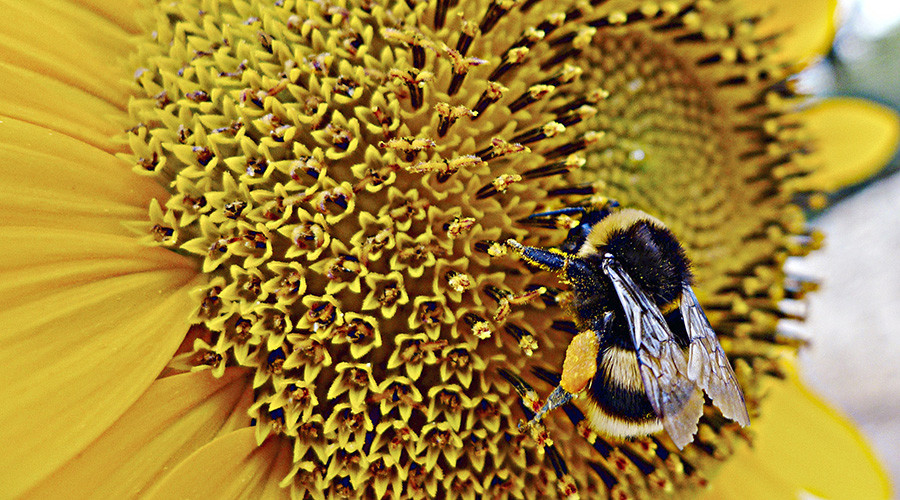A new study has found that after exposure to pesticides, bumblebees faced hindered pollination abilities – they visited fewer flowers and returned with less pollen, leading to less apple seeds.
The paper,witch tested the effects of the pesticide thiamethoxam, which belongs to a class of pesticides known as neonicotinoids. It also looked at the ability of the bumblebee to pollinate apple trees. Previous studies had only testing the effects of pesticides on honey bees, and not bumblebees, RT reported.
In the experiment, researchers used three groups of bees, comprised of 24 colonies with a queen bee and 99 workers. They exposed the first two groups to two different “field-realistic” levels of the pesticide, or amounts that are actually used by farmers to protect their crops — 2.4 parts per billion and 10 parts per billion. The third group wasn’t exposed to any pesticides at all. Colonies exposed to the 10 parts per billion level experienced the strongest effects.
Common pesticide could hinder bumblebees’ ability to pollinate plants – study
The paper,witch tested the effects of the pesticide thiamethoxam, which belongs to a class of pesticides known as neonicotinoids. It also looked at the ability of the bumblebee to pollinate apple trees. Previous studies had only testing the effects of pesticides on honey bees, and not bumblebees.
In the experiment, researchers used three groups of bees, comprised of 24 colonies with a queen bee and 99 workers. They exposed the first two groups to two different “field-realistic” levels of the pesticide, or amounts that are actually used by farmers to protect their crops — 2.4 parts per billion and 10 parts per billion. The third group wasn’t exposed to any pesticides at all. Colonies exposed to the 10 parts per billion level experienced the strongest effects.
“Our results also indicate that reduced pollination service delivery is not due to pesticide-induced changes in individual bee behavior.
“These findings show that pesticide exposure can impair the ability of bees to provide pollination services, with important implications for both the sustained delivery of stable crop yields and the functioning of natural ecosystems.”
The study did show one anomaly. When bumblebees were released alone in the field, they were actually more active, visiting more flowers, spending longer times foraging, and switching between apple trees.
H.Z

